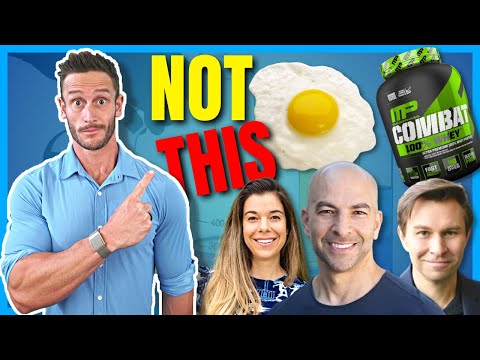I found this a useful collation
I am sorry, I have to say this, his botox is just too disturbing to watch the opening segment.
So who are the eleven?

Someone in the youtube comments kindly identified 11 points (the video I think has 12, however)
The key takeaways from Thomas DeLauer’s discussion with 11 longevity scientists are:
-
Increased Protein with Age: Contrary to common belief, increasing protein intake as we age is beneficial for muscle protein synthesis and overall longevity.
-
Importance of Muscle Mass: Muscle mass plays a crucial role in preventing frailty and maintaining quality of life in older age, going beyond just physical appearance.
-
Creatine Beyond Muscle Building: Creatine is effective not only for muscle growth but also for reducing inflammation and enhancing recovery after workouts.
-
Critical Role of Omega-3s: A deficiency in Omega-3 fatty acids can be as harmful as smoking in terms of cardiovascular health, underscoring their importance in the diet.
-
Longevity Insights from Monaco: The high life expectancy in Monaco is attributed to factors like diet (especially olive oil’s polyphenols), sunlight exposure, and vitamin D levels.
-
Nutrient Quality Over Caloric Restriction: Quality of nutrients might be more important than simply reducing calorie intake for longevity, as seen in studies with primates.
-
Processed Food Consumption Concerns: The high consumption of processed foods in the U.S. is linked to various health issues and challenges in controlling appetite.
-
GABA Supplements and Brain Health: GABA supplements may not be effective due to their inability to cross the blood-brain barrier, suggesting a need to focus on other substances for relaxation and recovery.
-
Alcohol’s Negative Impact on the Brain: Alcohol consumption adversely affects various body systems, particularly the brain, impacting overall health.
-
Peptides for Injury Recovery: Certain peptides, like BPC157, can significantly aid in injury recovery by enhancing blood flow to the affected areas.
-
Energy Flux in Fat Loss: A higher energy flux (consuming and expending more energy) is more effective for fat loss compared to a lower energy flux (consuming and expending less energy).
I wouldn’t listen to anything Thomas Delauer says. He is not to be trusted when it comes to advice on science and health.
I am a believer in taurine and GABA supplements. Gaba has been on my supplement list for quite some time. For me the effect is that it quiets my brain. It however does not affect my ability to do crosswords and sudoku puzzles after taking it. Even plain taurine somewhat activates GABA receptors, but not as much as homotaurine. Homotaurine is available as a supplement, but there are not too many suppliers.
It’s not a given that some GABA does not cross the blood brain barrier:
“It has long been thought that GABA is unable to cross the blood-brain barrier (BBB), but the studies that have assessed this issue are often contradictory and range widely in their employed methods.”
Interestingly:
Homotaurine is a GABA analog that acts as a GABA receptor agonist.
It has similar effects to GABA but better bioavailability.
Homotaurine binds to and activates GABA receptors, particularly GABA-A receptors.
This leads to inhibitory effects in the central nervous system similar to GABA.
Homotaurine is a GABA analog that directly binds and activates GABA receptors.
Homotaurine probably should be taken with GABA for the most benefits.
Supplements Similar to GABA that May Cross the Blood Brain Barrier
L-Theanine
Found in green tea
May increase GABA levels in the brain
Suggested dosage of 100-200 mg
Magnesium
Increases production of GABA in the brain
Suggested dosage of 200-400 mg elemental magnesium
Taurine
Amino acid that activates GABA receptors
Suggested dosage of 500-1000 mg
Valerian Root
Herbal supplement that increases GABA levels
Suggested dosage of 400-900 mg
Kava
Herbal supplement that binds to GABA receptors
Suggested dosage of 120-240 mg kavalactones
